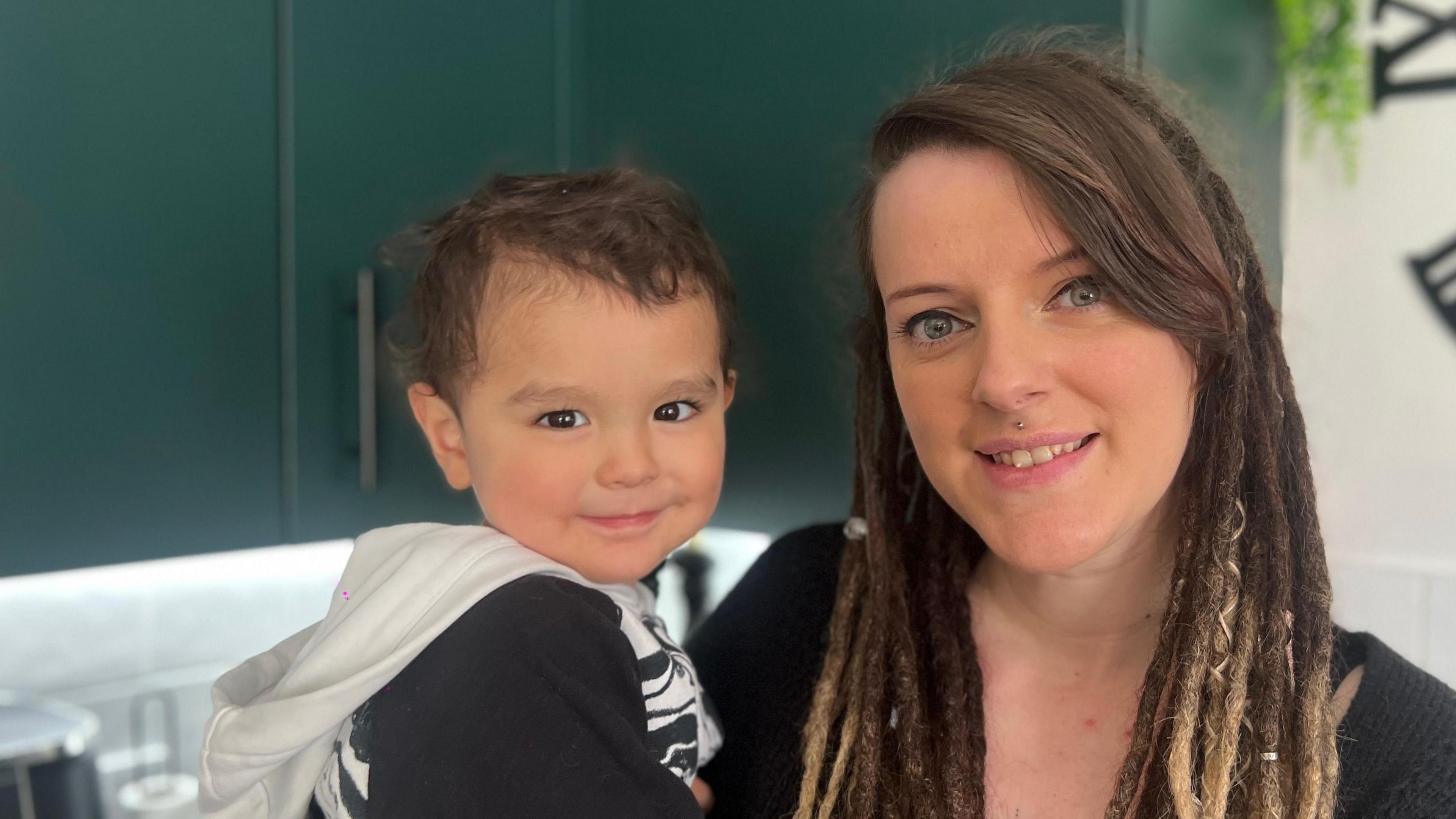City's food banks buck trend as demand falls
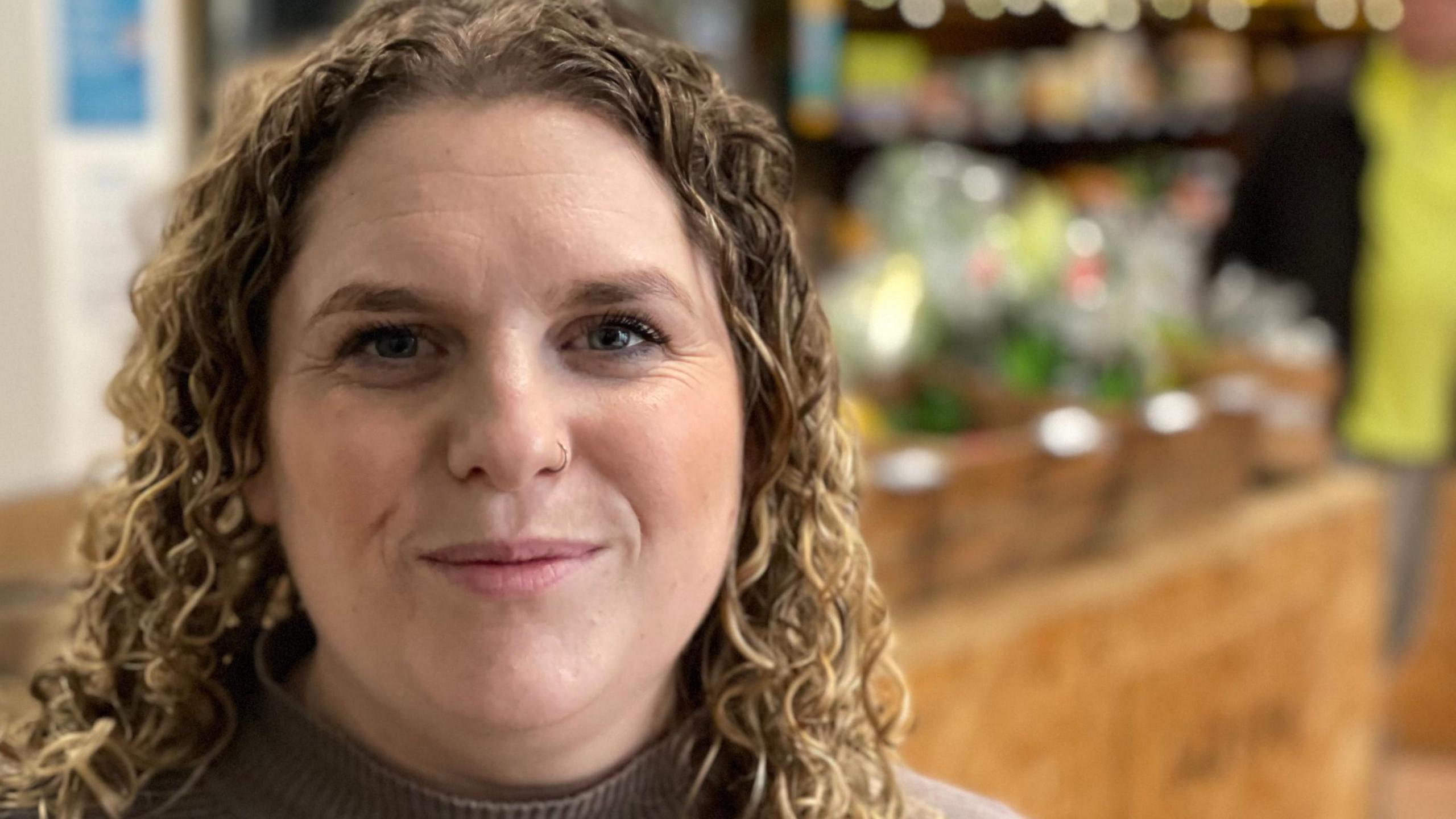
Amy Colley, of the Acts Trust, has seen a "significant decrease" in demand for food banks
- Published
Food bank use in Lincoln has dropped by 20% in the past year, a charity has reported.
The Acts Trust, which runs the city's two biggest food banks, said more than 1,000 people had stopped relying on the service.
Initiatives designed to tackle the root causes of food poverty, including targeted financial advice, are behind the success.
Amy Colley, from the charity, said: "Every year, I've seen rise, on rise, on rise of people needing to use the food bank. This is the first year we've seen a significant decrease."
The figures buck the trend reported by the Trussell Trust, which supports a nationwide network of food banks. It said users had risen from 2.99 million to 3.12 million, external in the same period.
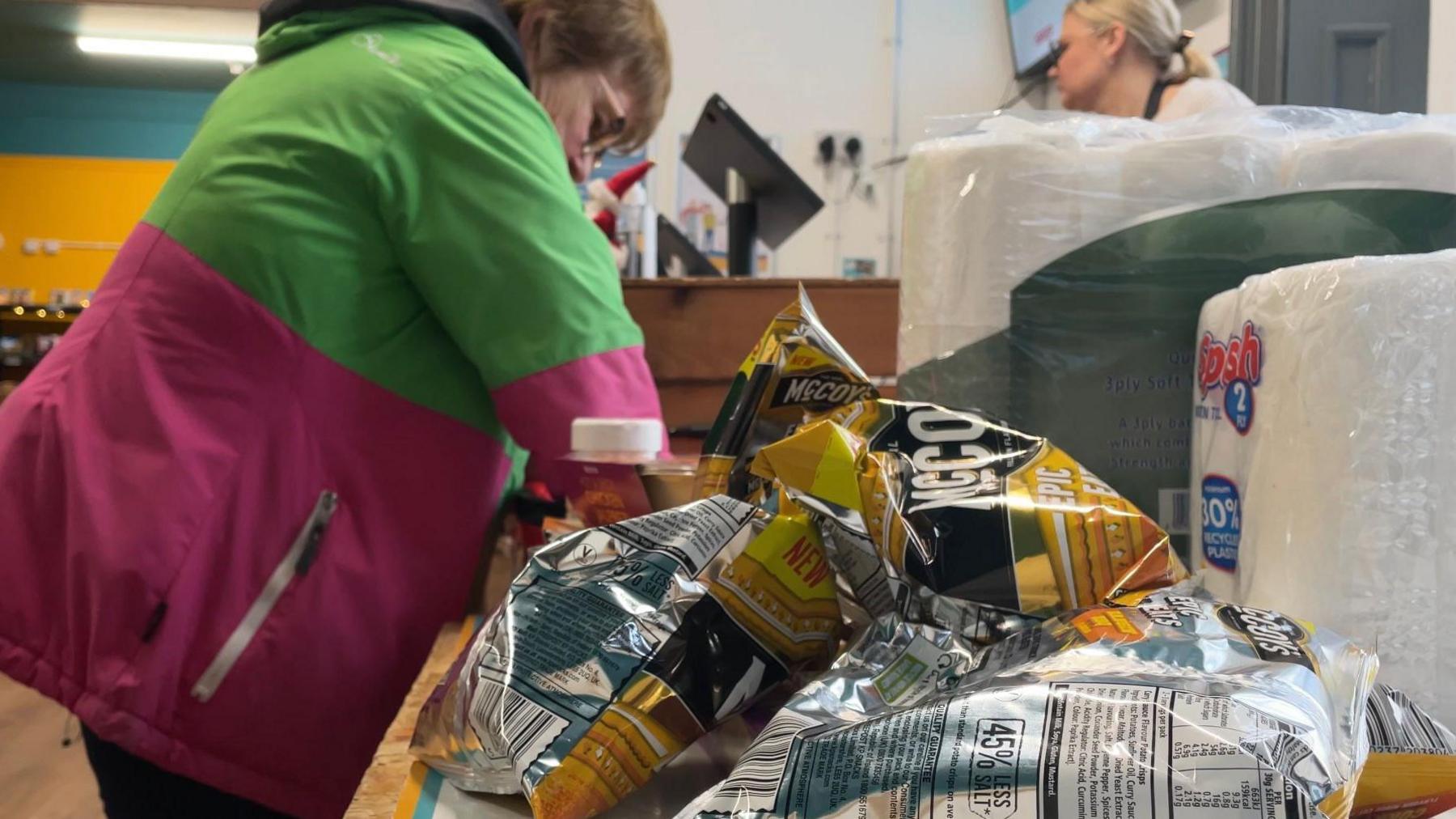
The Lincoln Community Grocery provides shopping at discounted rates
The Acts Trust said it was working with organisations that referred people to food banks and encouraging them to carry out "need assessments".
These are designed to understand how an individual might benefit from other forms of help, such as job clubs, financial advice and life skills.
"If you just give somebody a food parcel and nothing else, you've just given them three days' worth of food and that's it," Ms Colley explained.
"It's not really going to get to the root cause of what they're facing. What happens when they finish those three days? They're going to be in exactly the same situation."
The charity, which aims to "empower" people to end poverty, said it had seen a surge in the popularity of its community grocery shop, which sells surplus produce at a discount.
Dianne Appleton has been a regular user of the Lincoln Community Grocery, external since it opened.
"If we didn't have it I'd have to manage, but it would mean cutting down," she said.
"They do all the different meats here. You can get chicken and all sorts."
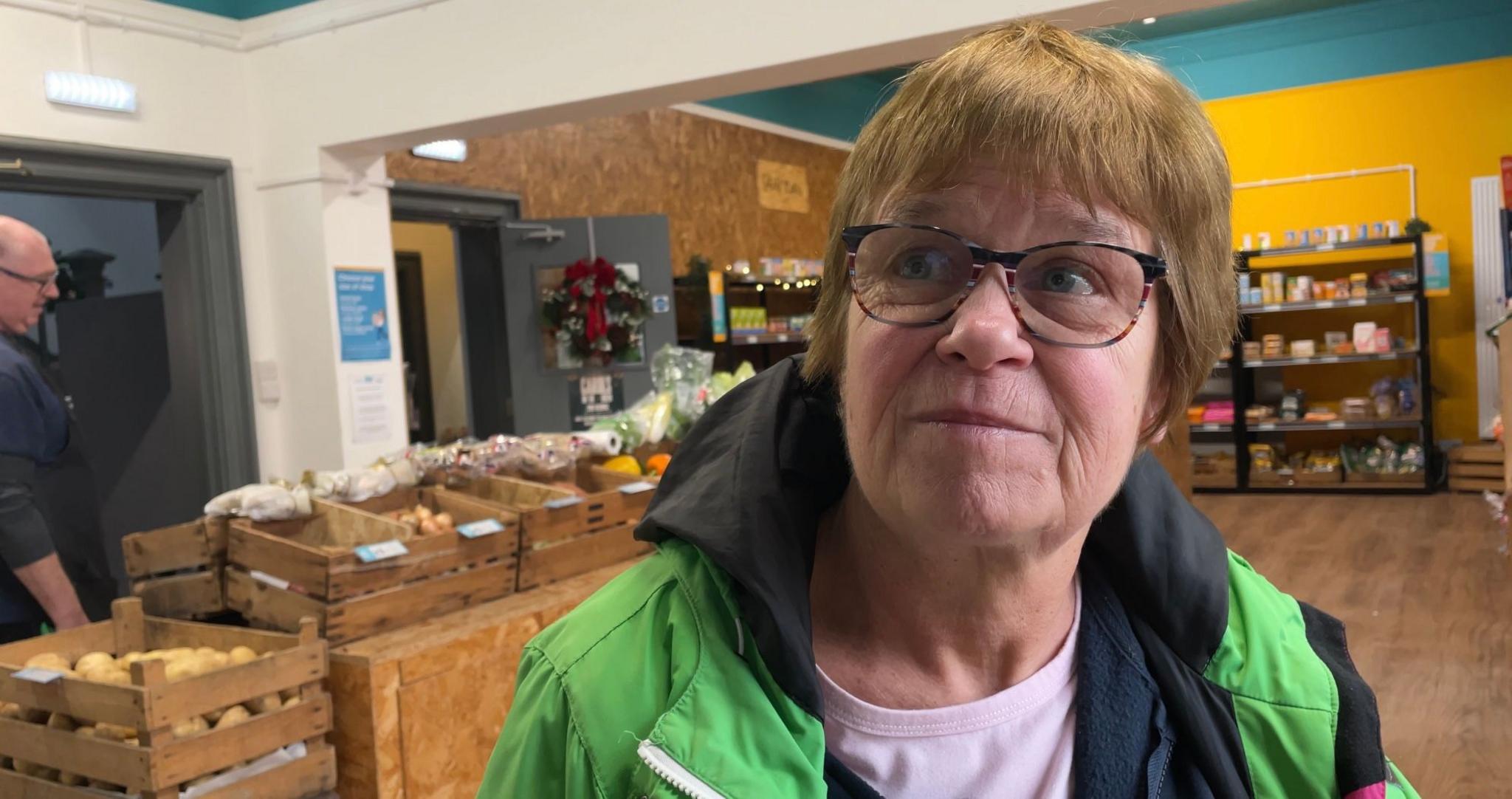
Dianne Appleton says she can afford to buy a greater variety of produce from the community grocery shop
Ms Colley said she was encouraged by the success of the initiatives, but there was still much work to do.
"This is the first real encouraging step that we're seeing a shifting tide," she added.
"We're not going to stop until we get there. Hopefully it means we're all out of a job, but if that happens it means we've done our job really well."
Listen to highlights from Lincolnshire on BBC Sounds, watch the latest episode of Look North or tell us about a story you think we should be covering here, external.
Related topics
- Published6 December 2023
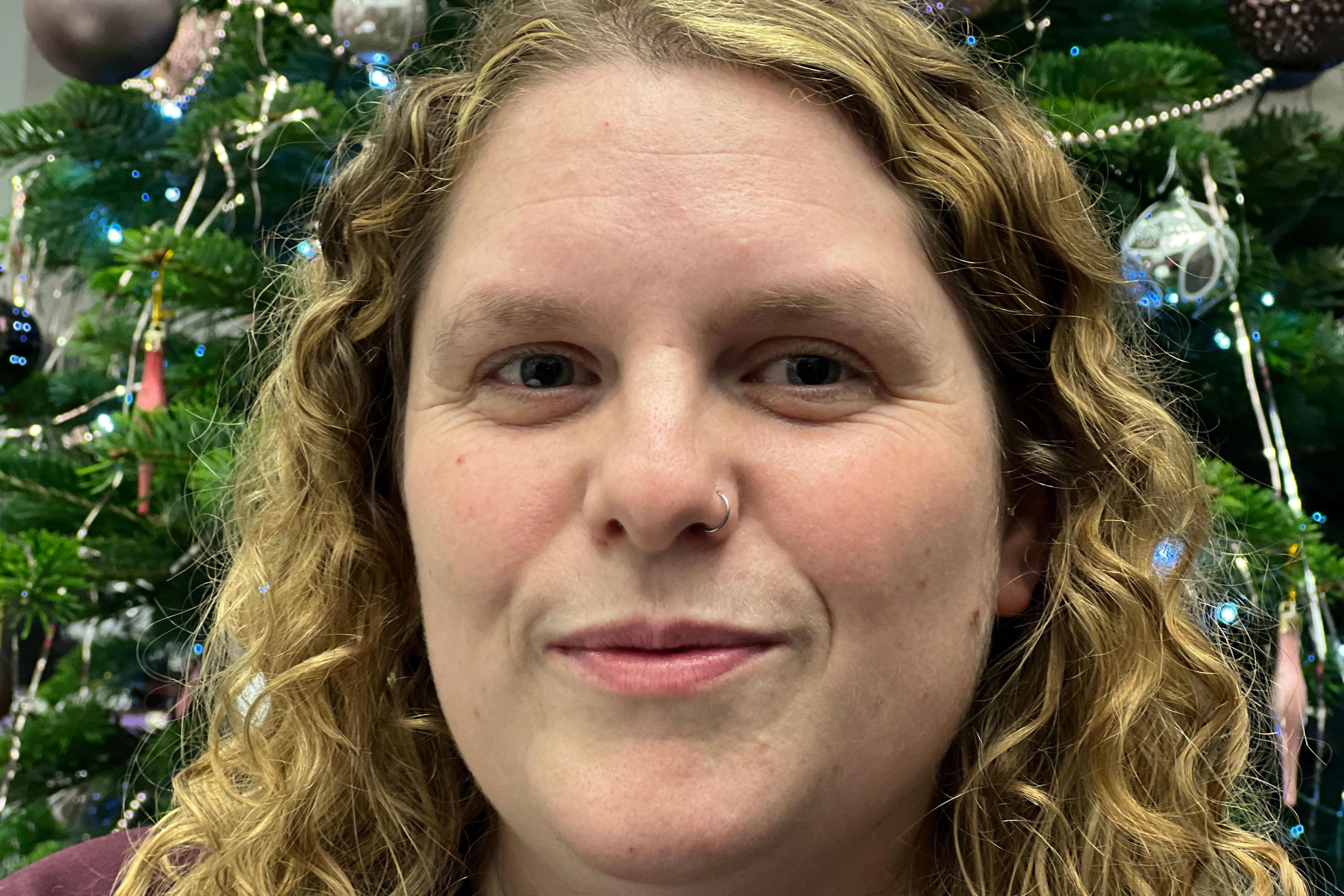
- Published13 October 2024
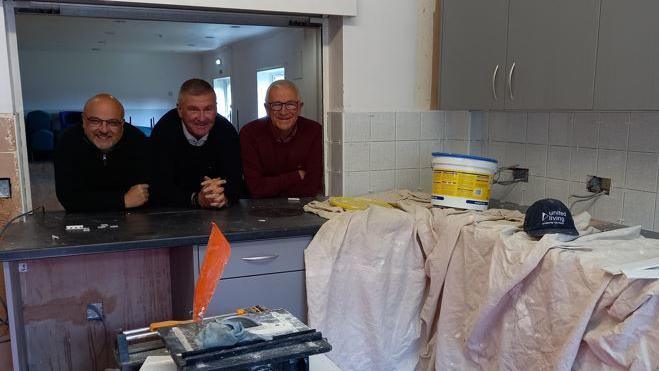
- Published9 October 2024
